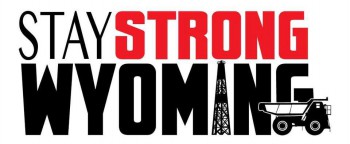(Casper Star Tribune, September 8) – Gov. Matt Mead on Tuesday announced the state has reached a deal with Alpha Natural Resources over the bankrupt coal company’s reclamation obligations, effectively ensuring some money will be available for cleanup if the miner permanently ceases operations.
Alpha, which filed for Chapter 11 protection on Aug. 3, has said it plans to reemerge from bankruptcy after restructuring its debts. The company has continued to operate throughout bankruptcy proceedings.
Under the terms of the agreement, Wyoming would receive a $61 million “superpriority claim.” The designation places the state at the head of the line of creditors to be paid if the Bristol, Virginia-based company closes its doors for good.
Regulators, in return, would agree to not revoke Alpha’s permits or seek additional financing to cover the cost of cleaning up the company’s two Wyoming mines.
The deal is subject to approval by the U.S. Bankruptcy Court for the Eastern District of Virginia.
Where Wyoming falls on the list of creditors to be paid has been one of the larger question marks looming over Alpha’s bankruptcy proceedings.
In May, state regulators ordered the company come up with $411 million in financing to cover its reclamation liabilities. The decision came after Alpha failed the financial test to qualify for “self-bonding” status, a designation that allowed the company to use its own finances as collateral on its cleanup costs.
Company representatives and state officials hailed the deal. They said it would keep Alpha’s Belle Ayr and Eagle Butte mines open while guaranteeing money is in place to cover the operations’ reclamation.
“This allows Alpha an opportunity to stay in business,” Gov. Matt Mead said in a statement announcing the deal. “The alternative would cost jobs and leave Wyoming taxpayers holding the bag for reclamation. Here, Wyoming will move to the front of the line for a significant part of its reclamation claim.”
But a landowners group blasted the agreement, noting that roughly $350 million of Alpha’s reclamation obligations remain unsecured.
“Until bankruptcy and everything else gets finished, it will be the status quo,” said Shannon Anderson, a lawyer at the Powder River Basin Resource Council.
Alpha, in court filings, said its ability to meet the $411 million sought by the state was “limited.” The company maintained it could ill afford a surety bond because it would be unable to post the necessary collateral.
Alpha has challenged the Wyoming Department of Environmental Quality’s determination that it no longer qualified for self-bonding status. In a filing before the Sixth Judicial Court of Campbell County, the company argued regulators did not properly conduct the financial test used for making their decision.
That case was stayed at Alpha’s request after the state and company agreed to enter into an informal conference about the miner’s reclamation obligations.
“This settlement represents a win-win for both the State of Wyoming and Alpha,” the company said in a statement. “It addresses environmental concerns through the continuation of Alpha’s reclamation obligations, provides Alpha with a financial path to meet its self-bonding obligations during its restructuring process, and avoids the potential shutdown of two productive coal mines in the state.”
Kyle Wendtland, director of the DEQ’s Land Quality Division, noted Wyoming had no guarantees to ensure Alpha met its reclamation obligations before the agreement was reached.
Now, the state can ensure that at least part of that liability is covered, he said. Alpha, Wendtland added, will be required to continue reclamation at Belle Ayr and Eagle Butte under the agreement.
The deal only applies while Alpha is in Chapter 11 proceedings, he said, noting self-bonding will not be an option for the company that emerges from bankruptcy.
“The state as a whole, we gained a whole (lot) by coming to a resolution on this,” Wendtland said. “Whatever company emerges will have to have a full bond that is not a self-bond.”
